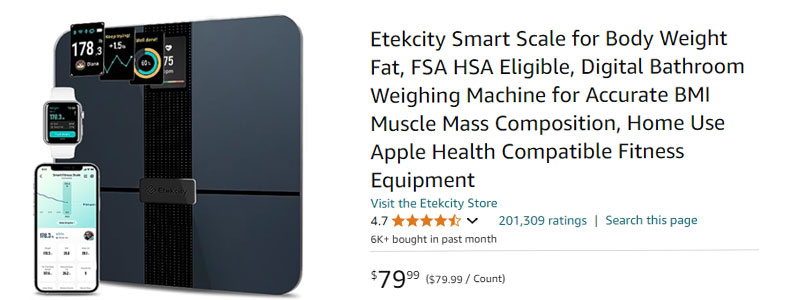Table of Contents
Introduction
Standing in front of my closet last spring, I faced a frustrating reality – nothing fit quite right anymore. Sound familiar? Whether you’re looking to shed a few pounds for health reasons, boost your confidence, or simply feel more energetic, losing weight as a woman comes with unique challenges. Our bodies respond differently to diet and exercise than men’s do, thanks to hormones, metabolism differences, and even the way we’re built.
I’ve been there, tried those miracle solutions, and learned the hard way that sustainable weight loss requires a smarter approach. That’s why I’ve compiled these seven research-backed weight loss tips specifically for women. No gimmicks, no unrealistic promises – just practical strategies that acknowledge the realities of female biology and busy lifestyles.

①Balance Your Plate with Protein-Rich Foods
If I could go back and tell my younger self one thing about weight loss, it would be this: protein is your secret weapon. As women, we often don’t get enough of it, yet protein is crucial for preserving muscle mass during weight loss.
When you’re cutting calories, your body can break down muscle tissue for energy unless you provide adequate protein. Since muscle burns more calories than fat (even at rest), maintaining it helps keep your metabolism humming.
Research published in the American Journal of Clinical Nutrition shows that women who consumed higher protein diets (about 30% of daily calories) lost more fat and maintained more muscle than those on lower protein plans.
Some excellent protein sources include:
- Lean poultry (chicken breast, turkey)
- Fish and seafood
- Greek yogurt (which contains nearly double the protein of regular yogurt)
- Eggs
- Beans and legumes
- Tofu and tempeh
I’ve found that aiming for 25-30 grams of protein per meal helps control hunger and prevents the afternoon energy crashes that used to send me straight to the vending machine.
Pro tip: Start your day with a protein-rich breakfast rather than carb-heavy options. A study from the University of Missouri found that women who ate a high-protein breakfast consumed fewer calories throughout the day and experienced fewer cravings.
②Embrace Strength Training (Yes, Really!)
“But I don’t want to get bulky!” I used to say this all the time before I understood female physiology. Here’s the truth: without massive amounts of testosterone (which women naturally have less of), building bulky muscles is extremely difficult.
What strength training actually does for women is revolutionary. It:
- Burns calories during your workout
- Continues burning calories for hours after (known as the “afterburn effect”)
- Builds metabolically active muscle tissue
- Strengthens bones, preventing osteoporosis
- Improves insulin sensitivity
According to research from Harvard Health, women lose about 5% of muscle mass every decade after age 30 if they don’t actively work to maintain it. This muscle loss directly impacts metabolism.
The good news? Just two to three 30-minute strength sessions weekly can make a significant difference. You don’t need fancy equipment either – bodyweight exercises, resistance bands, or light dumbbells work wonderfully.
My personal game-changer was incorporating compound movements that work multiple muscle groups simultaneously, like squats, lunges, push-ups, and rows. These exercises give you the most bang for your buck when time is limited.
③Manage Stress to Control Cortisol
Here’s something many weight loss articles overlook: the stress-weight connection. When we’re stressed, our bodies produce more cortisol, often called the “stress hormone.” Elevated cortisol levels can increase appetite, particularly for high-calorie comfort foods, and promote fat storage around the abdomen.
As women, we’re often juggling multiple responsibilities and roles, making stress management not just nice to have but essential for weight management.
Effective stress-reduction practices include:
- Mindfulness meditation (even 5-10 minutes daily helps)
- Deep breathing exercises
- Regular physical activity
- Adequate sleep (7-9 hours nightly)
- Setting boundaries and saying “no” when necessary
- Connecting with friends and loved ones
I started taking 10-minute “stress breaks” during my workday – stepping outside, breathing deeply, or simply sitting quietly without my phone. These small pauses gradually reduced my stress eating and made weight management more manageable.
Research from the University of California has shown that mindfulness practices can reduce cortisol levels and stress-related eating behaviors, making them valuable tools in any woman’s weight loss journey.

④Prioritize Quality Sleep
I used to wear my minimal sleep needs like a badge of honor – until I realized how dramatically it affected my weight loss efforts. Poor sleep directly impacts the hormones that regulate hunger and fullness: ghrelin and leptin.
When you’re sleep-deprived, ghrelin (which stimulates appetite) increases while leptin (which signals fullness) decreases. This hormonal imbalance can increase hunger by up to 24% and specifically trigger cravings for high-carb, sugary foods.
A study published in the Annals of Internal Medicine found that dieters who slept 8.5 hours nightly lost 55% more body fat than those sleeping just 5.5 hours – even when consuming the same number of calories.
To improve sleep quality:
- Maintain a consistent sleep schedule (even on weekends)
- Create a restful bedroom environment (cool, dark, and quiet)
- Limit screen time 1-2 hours before bed
- Avoid caffeine after midday and alcohol close to bedtime
- Develop a relaxing bedtime routine

I found that creating a “wind-down hour” before bed dramatically improved my sleep quality. During this time, I avoid work, screens, and stressful conversations, focusing instead on relaxing activities like reading, light stretching, or taking a warm bath.
⑤Be Strategic About Carbohydrates
Carbs are not the enemy, but timing and quality matter tremendously. Women’s bodies tend to be more sensitive to carbohydrate intake, particularly during certain phases of our menstrual cycle.
Rather than eliminating carbs (which often leads to cravings and rebound eating), consider these strategic approaches:
- Choose complex carbs with fiber (whole grains, legumes, vegetables) over refined options
- Pair carbohydrates with protein or healthy fats to slow digestion and blood sugar response
- Consider concentrating carbohydrate intake earlier in the day or around workouts
- Adjust carb intake based on your activity level that day
- Be aware that many women experience increased carb cravings during the luteal phase of their cycle (the week before menstruation)
This table illustrates smart carbohydrate choices:
| Instead of This | Choose This |
|---|---|
| White bread | 100% whole grain bread |
| White rice | Brown rice, quinoa, or cauliflower rice |
| Potato chips | Roasted chickpeas or nuts |
| Sugary breakfast cereal | Overnight oats with berries |
| Pasta | Zucchini noodles or whole grain pasta |
| Sweetened yogurt | Plain Greek yogurt with fresh fruit |
Research from the Cleveland Clinic shows that this balanced approach to carbs helps maintain stable energy levels while supporting weight loss goals. I’ve found that tracking how different carb sources affect my energy and hunger helps me make better choices without feeling deprived.
⑥Stay Hydrated (It’s More Important Than You Think)
Could something as simple as drinking water really impact weight loss? Absolutely. Research shows that adequate hydration:
- Boosts metabolism temporarily
- Helps distinguish thirst from hunger (we often confuse the two)
- Supports proper digestion and nutrient absorption
- Enhances workout performance and recovery
A study published in the Journal of Clinical Endocrinology and Metabolism found that drinking 16 ounces of water temporarily boosted metabolic rate by 30% in both men and women.
Even mild dehydration can slow metabolism and increase fatigue, making you less likely to exercise and more likely to reach for quick energy from food.
Hydration tips that worked for me:
- Start each morning with a large glass of water before coffee
- Keep a marked water bottle visible throughout the day
- Set reminders on your phone until drinking becomes habitual
- Infuse water with fruit, cucumber, or herbs if you find plain water boring
- Consume hydrating foods like watermelon, cucumber, and leafy greens
I noticed that when I consistently drink 8-10 cups of water daily, my energy improves, and I’m less likely to misinterpret thirst as hunger.

⑦Track Progress Beyond the Scale
One of the biggest mistakes I made in my own weight loss journey was obsessing over the number on the scale. Women’s weight naturally fluctuates throughout the month due to hormonal changes, often by 3-5 pounds.
More meaningful measures of progress include:
- How your clothes fit
- Body measurements (waist, hips, arms, etc.)
- Energy levels and mood
- Strength gains and endurance
- Sleep quality
- Lab values like blood pressure, cholesterol, and blood sugar
Consider keeping a journal that tracks these non-scale victories alongside your weight. This broader perspective keeps motivation high even during weeks when the scale isn’t moving.
According to research from the National Weight Control Registry, people who maintain long-term weight loss tend to focus on these holistic measures rather than weight alone.
I started taking progress photos monthly and recording improvements in my fitness capabilities. Being able to do my first unassisted push-up was far more motivating than any number on the scale could ever be!
Weight Loss Tips for Women FAQ
How much weight can women realistically lose per week?
Healthy, sustainable weight loss typically ranges from 0.5-2 pounds weekly. Women generally lose weight more slowly than men due to differences in muscle mass and hormonal factors. Losing weight at this moderate pace helps preserve muscle mass and is more likely to result in long-term success.
Do women need to eat differently during different phases of their menstrual cycle?
Research suggests that women may benefit from adjusting their nutrition throughout their cycle. During the follicular phase (first half of cycle), women often have higher energy and may tolerate more intense workouts and slightly lower calorie intake. During the luteal phase (second half), many women experience increased hunger and cravings. Slightly increasing calories from complex carbs and focusing on gentler workouts during this time may improve adherence to your plan.
Is intermittent fasting effective for women trying to lose weight?
While intermittent fasting works well for some women, others find it disrupts their hormonal balance. Modified approaches like a 12:12 schedule (12 hours eating, 12 hours fasting) or 14:10 may be more suitable for women than more restrictive protocols. As noted by researchers at Johns Hopkins Medicine, women should listen to their bodies and discontinue fasting if they experience menstrual irregularities, sleep problems, or mood issues.
How does menopause affect weight loss efforts?
During perimenopause and menopause, declining estrogen levels can lead to increased abdominal fat storage and decreased muscle mass. Weight maintenance often requires adjusting calorie intake downward and placing even greater emphasis on strength training to preserve metabolism. Research indicates that high-intensity interval training (HIIT) may be particularly beneficial during this life stage.
Conclusion
Weight loss for women isn’t simply about eating less and moving more. Our unique physiology requires a thoughtful approach that works with our bodies, not against them. By implementing these seven science-backed strategies – prioritizing protein, embracing strength training, managing stress, improving sleep, being strategic with carbohydrates, staying hydrated, and measuring progress comprehensively – you’ll create sustainable habits that support not just weight loss but overall wellbeing.
Remember, the most successful weight loss journey is one you can maintain long-term. Be patient with yourself, celebrate small victories, and focus on consistency rather than perfection.
Ready to begin your journey? Start by selecting just one or two tips from this article to implement this week. Small, consistent changes lead to remarkable results over time.
What weight loss strategy will you try first? Share your experiences in the comments below!
Econopass Weight Loss Extra Tips
To further assist you on your weight loss journey, we’ve compiled additional resources that delve deeper into specific aspects of weight loss tips:
- The Ultimate Guide to Sustainable Weight Loss
- Best Breakfasts for Weight Loss: Start Your Day Right
- Effective Cardio Workouts for Weight Loss























